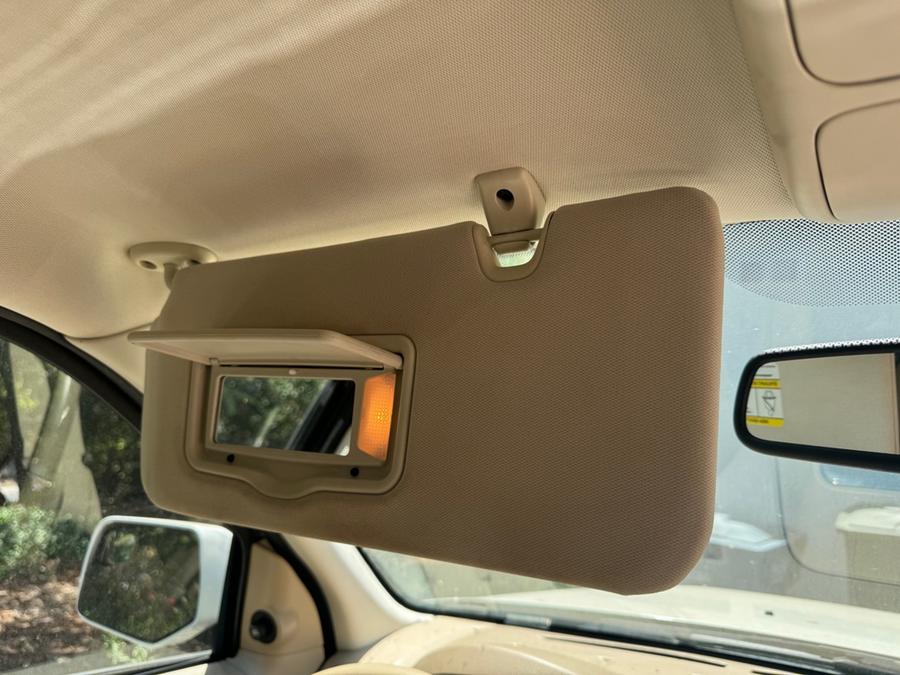Pretend for a moment that you are one of the very lucky people on this planet who was born into extreme wealth. Not just millions, tens of millions, or even hundreds of millions. Imagine that you've been given billions of dollars in cash just for being born. How would you spend that money? How would you spend the rest of your life?
Most people would probably spend the rest of their life vacationing in exotic locations, flying from mansion to mansion on private jets without a care in the world! You know what most people wouldn't do? Use their unlimited time, connections, and wealth to build the largest, deadliest, and most powerful private army on the planet. Sounds like the plot line from a Hollywood movie, right? Sometimes, true stories are better than a movie. This is the story of Erik Prince and his company, Blackwater.
Erik Prince was born June 6, 1969, in Holland, Michigan, a city best known for its annual tulip festival and its large population of Dutch Americans. Erik's parents, Edgar and Elsa, shared a Dutch heritage. Four years before Erik was born, Edgar Prince and two colleagues from the die-cast machine manufacturing company where they worked founded their own firm, The Prince Company. The Prince Company set out to make small-scale accessories for the auto parts industry, and within a few years, business was booming. By the time Erik was four years old, Prince Co. had hundreds of employees and multiple divisions.
In 1973, Edgar Prince patented a simple yet innovative invention for the automobile, which would eventually earn The Prince family a gargantuan fortune. As crazy as it sounds, that billion-dollar invention was an automobile sun visor with a built-in mirror and light. That's right, just like the one in your car right now. Most likely located just above your head when you're driving or sitting in the passenger seat. Just like this one:

The sun visor, as we know it today, first appeared as a standard accessory in all 1973 Cadillacs. Over time, The Prince Co. expanded its innovations to include the built-in garage door opener, dashboard thermometer, compass, and more. But it all started with a sun visor.
It's unclear whether the sun visor was actually invented by Edgar Prince himself, but he and his family were the main beneficiaries of an extremely valuable royalty that came with every sun visor that the company sold. And as the sun visor became a standard accessory in all cars worldwide, Edgar Prince made a fortune. At their peak in the mid-1990s, The Prince Company manufactured 20,000 sun visors every day.
Erik was very close to his father growing up. During his formative years, the two would travel the world together, visiting famous WWII battle locations and even the Dachau concentration camp. These visits instilled in the young Erik a deep sense of national pride and a desire to protect his homeland from ever seeing similar atrocities.
For college, Prince was accepted into the U.S. Naval Academy but dropped out after three semesters. Instead, he studied economics at Hillsdale College and worked as an intern in the George H.W. Bush White House. After receiving his bachelor's degree in 1992, he became a commissioned Navy officer and eventually a Navy SEAL with deployments to Haiti, the Middle East, and the Balkans. However, his SEAL career was cut short upon the death of his father in 1995. The 25-year-old Erik was called home to run the day-to-day operations of the Prince Company. The following year, Erik and his mother decided to sell their family business to a company called Johnson Controls. Their price tag? $1.3 billion in cash. That's the same as around $2.6 billion in today's dollars.
At this point, Erik Prince was 25 years old and sitting on a billion-dollar fortune. Did he escape to the Bahamas or Hawaii to live out a life full of mamacitas and margaritas? No. Quite the opposite, in fact.
Within a year of the company's sale, Prince moved to Virginia Beach and launched his very own private military company. He called it Blackwater Worldwide. The initial purpose of Blackwater, which was co-founded with a fellow ex-Seal named Al Clark, was to build the ultimate training and recreational facility for American military and police personnel, active and retired.

Mark Wilson/Getty Images
Their first major investment was a 6,000-acre piece of land in nearby North Carolina that would be used for special ops training. The facility was basically a school for SWAT teams, police, and other military units. Business was slow at first. Then, in 2000, after the attack on the U.S.S. Cole, the Navy was looking for someone to train sailors against terrorist attacks. Blackwater won the contract.
After September 11, the company flourished, going from $200,000 in federal contracts in 2000 to $1 billion by 2007. The success led some of Prince's critics to label him a war profiteer. Regardless, the government was using more and more private contractors for some of the things it used to handle in-house, such as the protection of diplomats and other private security. By the mid-2000s, Blackwater was the largest, deadliest, and most powerful private army in the world.
Unfortunately, in 2007, controversy hit Blackwater when its employees, working under a State Department contract, killed 17 unarmed Iraqi civilians fleeing a car bombing. The U.S. House of Representatives called a hearing on Blackwater, where Prince defended the actions of his contractors. Defense Secretary Robert Gates wrote a memo to Admiral Mike Mullen questioning the use of private contractors in providing combat security training to the military.
In December 2008, six of the Blackwater contractors involved in the shooting were indicted by the Justice Department. A few months later, Prince announced he would step down as Blackwater CEO, and a year later, he put the company up for sale.
After the sale of the company to a group of private investors, Prince moved to the United Arab Emirates, where he became an advisor to the crown prince of Abu Dhabi. In 2009, Blackwater was rebranded as Xe Services. In 2011, it was again re-named, this time to its current Academi.
Today, thanks to his family money and the incredible success of Blackwater during its heyday, today Erik Prince has a personal net worth of $2 billion. His older sister, Betsy, is also a multi-billionaire. Partly because of the family wealth but also because in 1979, she married the co-founder of Amway, Richard DeVos. They remained married until Richard's death in 2018. Betsy DeVos served as President Donald Trump's Secretary of Education from 2017 to 2021.
In addition to his role in Blackwater, it was also eventually revealed that Prince served as part of a covert CIA task force. As part of this task force he allegedly helped the CIA execute missions targeting al-Qaeda leaders and allies, and helped the agency insert personnel into areas where U.S. intelligence is weak. In short, he has been operating as a CIA spy, as what Vanity Fair called "a Mr. Fix-It in the war on terror." His name was leaked to the press by the House Intelligence Committee.
In recent years, Erik has led the private equity firm Frontier Resource Group, which primarily invests in oil and transportation assets in Africa.
While Hollywood has made allusions to Prince-like characters who run Blackwater-like operations, no doubt there'll be a full silver-screen send-up one day soon. Because Erik Prince — billionaire, soldier, family man, and spy — might just be reality's most interesting man in the world.


0 Comments